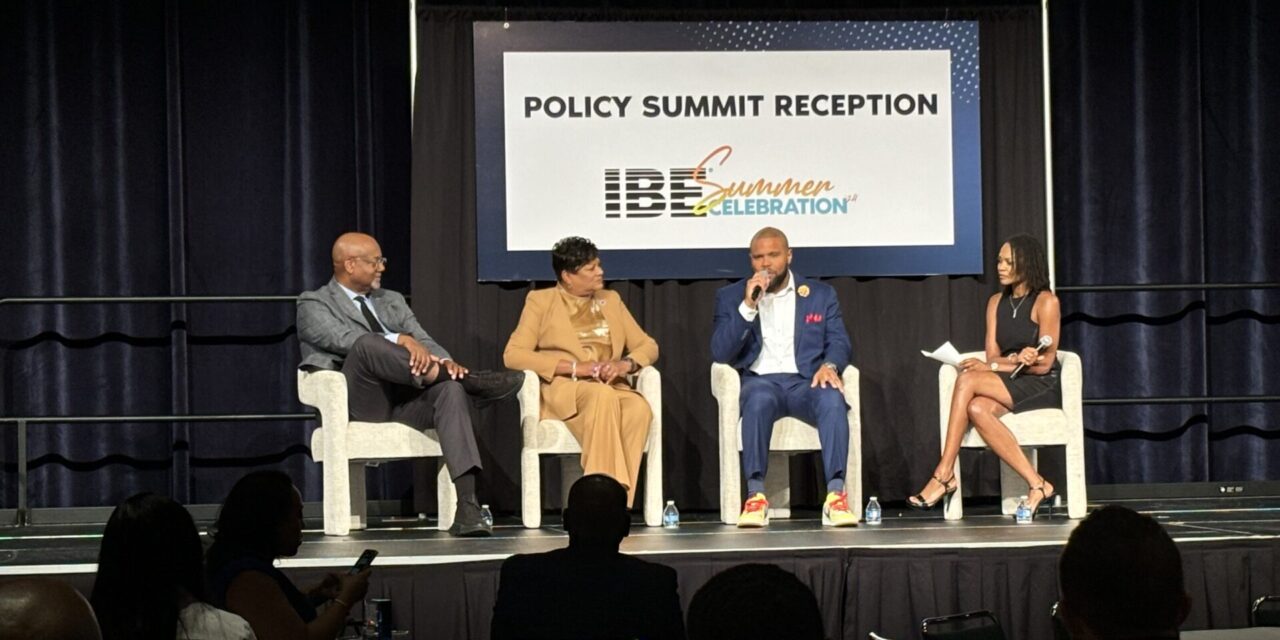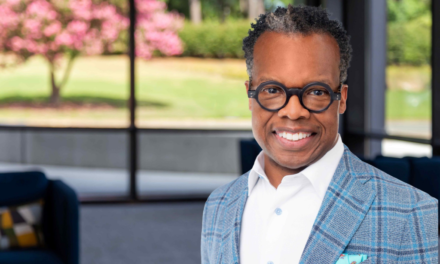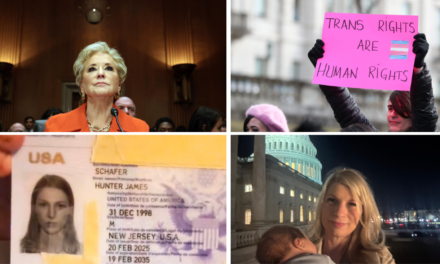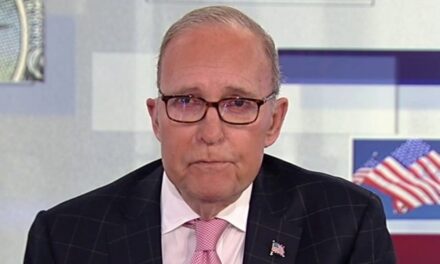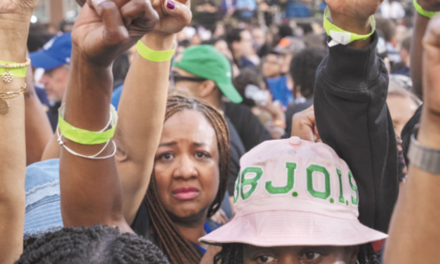
 Mayor Ronald Morrell Jr., Mayor Deb Whitfield and Mayor Rod Roberson sat down for a panel discussion about policy and economic development on June 28 at the 2024 Indiana Black Expo. (Photo/Chloe McGowan)
Mayor Ronald Morrell Jr., Mayor Deb Whitfield and Mayor Rod Roberson sat down for a panel discussion about policy and economic development on June 28 at the 2024 Indiana Black Expo. (Photo/Chloe McGowan)
Mayor Ronald Morrell Jr., Mayor Deb Whitfield and Mayor Rod Roberson took the stage June 28 during the 2024 Indiana Black Expo Policy Summit to discuss community issues and how to solve them.
Presented by Crossroads Public Affairs, Black Onyx Management, Indianapolis Urban League, African American Coalition of Indianapolis and Indianapolis African American Quality of Life Initiative, IBE’s Summer Celebration invited five newly elected Black mayors to speak in a panel discussion.
“A policy summit like this underscores the critical role of local leadership in advancing community-driven solutions across our state,” Alice Watson, president and CEO of the Indiana Black Expo, said in a statement. “We are honored to provide a platform for these dynamic mayors to share their insights and strategies for fostering collaboration and addressing challenges within their communities.”
Although Mayor Angie Nelson Deuitch and Mayor Stephanie Terry were unable to attend, Morrell, Whitfield and Roberson each spoke to the importance of not just Black representation in positions of power, but what it means to care for their communities and foster the next generation.
“I like to say we can’t be mayor of anyone else’s city but our own,” Roberson, mayor of Elkhart, said during the discussion. “We need to be good at what we do, and we need to learn and work in order to do so.”
Only nine of Indiana’s mayors are African American, Roberson pointed out — including Gary, East Chicago, Michigan City, Elkhart, Fort Wayne, Terre Haute, Lawrence, Marion and Evansville — and only four of those nine are African American women.
The biggest issue Marion is facing is housing, Morrell said.
READ MORE: Who do I call?: Digital deviants edition
“Every city that I’ve talked to, every mayor is struggling with the same thing,” Morrell said. “I think that from our perspective, that’s what I’m focusing on first with economic development. If we can create a sense of place where people want to live in our city and we have a place where they can stay, I believe the jobs will follow after that.”
Lawrence, however, is focused on economic development, Whitfield said, which includes affordable housing, access to health care and attracting new businesses. Lawrence, which is a decommissioned fort, is one of the four “excluded cities” in Marion County, and Whitfield made history as its first Black woman mayor in her first term.
“There’s things that you have to think outside of the box that you can entice someone to come to your city,” Whitfield said. “When you think about businesses, when you think about homes, when you think about social economics, you think about food deserts, and then, of course, health care. All of these things are very important to the city to strive to grow.”
Building relationships in the community is a great place to start, Whitfield said. It means giving the city “a seat at the table” by improving infrastructure connectivity and public safety, as well as working on affordable housing for all, including students and retirees.
Morrell did a housing study in his first term and found the city could lease or sell approximately 400 houses or units annually for the next five years and started reaching out to developers immediately.
The simpler answer, however, according to the panelists, is money.
“The state has such a surplus, as some of those funds need to be released to the municipalities in order for us to continue to survive,” Whitfield said. “That’s a conversation that we have to have from the top down, middle down, bottom up. We need to have those strong conversations. We need to be working with our elected officials and let us know what we need.”
In addition to discussing policies and ways to meet needs in their cities, the panelists spoke about how being a mayor means breaking barriers, bringing about change and having a personal relationship with the city and its community.
Mayorship creates a sense of leadership and allows space for mentoring and being an example for the kids in the community, while also leaving a legacy of excellence — which is more important than being the first Black man to be mayor, Roberson said.
“Many times, when I was running, they asked me, ‘What is it going to be like being the first African American mayor of Elkhart?’ and I said, ‘I’m not running to be the first African American mayor of Elkhart. I’m running to be the best mayor the city has ever had who happened to be Black,” Roberson said.
This story has been updated.
Contact Arts & Culture Reporter Chloe McGowan at 317-762-7848. Follow her on Twitter @chloe_mcgowanxx.
